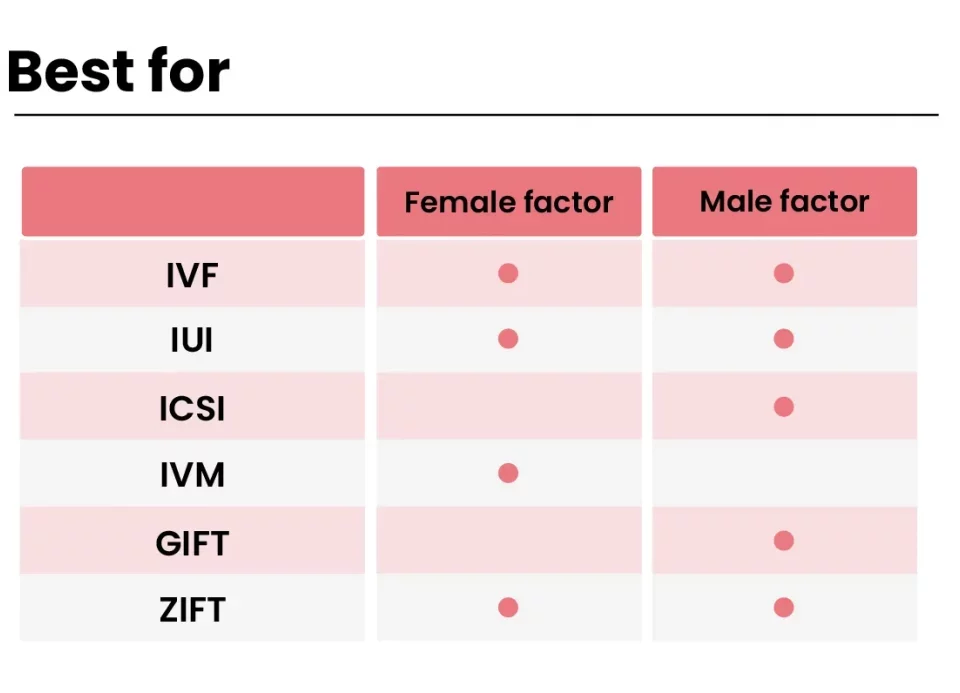
What Is Mini IVF? Your Complete Guide to This Gentle Fertility Option
April 10, 2025
Does Blue Cross Blue Shield Cover IVF? Your Guide to Fertility Coverage
April 10, 2025Can You Take Metformin While Undergoing IVF?

Can You Take Metformin While Undergoing IVF?
If you’re exploring in vitro fertilization (IVF) as a path to parenthood, you might have stumbled across metformin—a medication often linked to diabetes but increasingly popping up in fertility conversations. Maybe you’ve heard it could help with IVF success, or perhaps you’re wondering if it’s safe to keep taking it during the process. You’re not alone! Tons of people ask this question, and the answers aren’t always straightforward. So, let’s dive into what metformin is, how it ties into IVF, and whether it’s a good fit for you—all in a way that feels like a chat with a friend who’s done the homework.
This isn’t just about repeating what’s out there. We’re going beyond the basics to uncover fresh insights, backed by science, real-world experiences, and the latest buzz from folks just like you. Whether you’re dealing with polycystic ovary syndrome (PCOS), curious about egg quality, or just want to know what to expect, this guide has you covered.
What Is Metformin, Anyway?
Metformin is a drug most people know as a go-to for managing type 2 diabetes. It works by lowering blood sugar levels, making your body more sensitive to insulin—a hormone that helps turn food into energy. Think of it like a traffic cop for your bloodstream, keeping sugar from piling up and causing chaos. But here’s the twist: metformin isn’t just for diabetes. Doctors have found it can play a surprising role in fertility, especially for those facing challenges like PCOS.
For women with PCOS—a condition where hormones get out of whack, often leading to irregular periods and trouble ovulating—metformin can step in to calm things down. It lowers insulin levels, which can otherwise spike and mess with your ovaries. Lower insulin might mean fewer male hormones (like testosterone) running wild, giving your body a better shot at regular ovulation. And when ovulation happens more predictably, your chances of conceiving—naturally or through IVF—can improve.
But does that mean it’s a magic bullet for IVF? Not quite. Let’s unpack how it fits into the fertility puzzle.
How Does Metformin Connect to IVF?
IVF is like a high-stakes science project. Doctors stimulate your ovaries to produce eggs, retrieve them, fertilize them in a lab, and then transfer an embryo back into your uterus. It’s a big deal, and anything that might boost success rates—like metformin—gets a lot of attention. So, where does it come in?
The PCOS Factor
If you have PCOS, metformin might already be part of your life. About 1 in 10 women of childbearing age deal with this condition, and it’s a common reason for fertility struggles. High insulin levels in PCOS can lead to wonky ovulation and even affect egg quality. Studies suggest metformin could help by:
- Balancing hormones: It reduces insulin, which might lower androgen levels and let your ovaries function more smoothly.
- Boosting egg production: Some research hints that metformin could improve how your ovaries respond during IVF stimulation, potentially leading to better eggs.
- Lowering risks: It’s been linked to a reduced chance of ovarian hyperstimulation syndrome (OHSS), a rare but serious IVF complication where ovaries overreact to meds.
A 2020 meta-analysis in JAMA Network Open looked at 12 studies with over 1,100 women with PCOS undergoing IVF. It found metformin cut OHSS risk by about half—pretty impressive! But here’s the catch: it didn’t consistently improve pregnancy or live birth rates across the board. So, while it’s helpful for some, it’s not a universal win.
Beyond PCOS: Could It Help Everyone?
Here’s where things get interesting. What if you don’t have PCOS? Can metformin still give your IVF a leg up? This is one of those areas that doesn’t get enough spotlight. Some small studies—like one from Fertility and Sterility in 2012—suggest that even women without PCOS might see benefits. In that study, women taking metformin during repeat IVF cycles had more eggs retrieved and better pregnancy rates compared to their earlier tries without it. The theory? Metformin might tweak how insulin interacts with your ovaries, improving egg quality no matter your diagnosis.
But hold up—most experts say we need bigger studies to confirm this. For now, it’s a “maybe” worth discussing with your doctor, especially if you’ve had failed IVF cycles or suspect insulin could be a sneaky player in your fertility story.
Is It Safe to Take Metformin During IVF?
Safety’s a big deal when you’re talking about fertility treatments. You’re already juggling hormones, needles, and hope—adding a pill like metformin can feel like one more thing to worry about. Let’s break it down.
Short-Term Safety
Good news: metformin’s been around since the 1950s, and it’s got a solid track record. For most people, it’s safe during IVF. Common side effects—like nausea, bloating, or diarrhea—happen in about 25% of users, but they often fade if you start with a low dose and build up slowly. Here’s a quick rundown:
✔️ Pros: No major red flags for IVF patients. It doesn’t seem to harm eggs, embryos, or early pregnancy.
❌ Cons: Tummy troubles can be a drag, especially when you’re already stressed about IVF.
A rare but serious risk is lactic acidosis, where acid builds up in your blood. It’s super uncommon—about 1 in 30,000 users—and mostly tied to kidney problems or dehydration. If your doctor checks your kidney function (with a simple blood test), you’re usually in the clear.
Pregnancy and Beyond
What if IVF works and you get pregnant? Should you keep taking metformin? Studies—like a 2022 review in Journal of Assisted Reproduction and Genetics—say it’s generally safe for early pregnancy, with no clear link to birth defects. Some women with PCOS even stay on it through the first trimester to lower miscarriage risk, which can be higher with this condition (30-50% versus 15% in the general population). One study from 2006 in Gynecological Endocrinology found miscarriage rates dropped from 41% to 10% in PCOS patients who kept taking metformin during pregnancy.
But here’s a heads-up: long-term effects on kids born to moms who took metformin during IVF aren’t fully studied. Early data looks reassuring, but it’s something to chat about with your fertility team.

What Does the Latest Research Say?
Science moves fast, and IVF research is no exception. Let’s peek at what’s fresh in 2025—stuff you might not find in older articles.
New Findings on Egg Quality
A 2023 study from Reproductive BioMedicine Online dug into how metformin affects egg quality in PCOS patients. They found that women taking metformin for at least 3 months before IVF had eggs with healthier mitochondria (the powerhouses inside cells). Better mitochondria could mean stronger embryos, though the study didn’t track live births. It’s a clue that timing matters—starting metformin early might give your eggs a head start.
Weight and IVF Success
Here’s something new: metformin might help heavier women more than others. That 2020 JAMA meta-analysis found that women with a BMI over 26 saw better clinical pregnancy rates with metformin during IVF. If you’re carrying extra weight, this could be a game-changer—weight loss is tough during IVF, and metformin might bridge the gap by tweaking insulin sensitivity.
Timing and Dosage Trends
Doctors are getting smarter about when and how much metformin to use. A 2024 survey of fertility clinics (not yet published but trending on X) showed many now recommend 1,500-2,000 mg daily, starting 2-3 months before IVF. Why? It gives your body time to adjust and might maximize benefits like hormone balance and OHSS protection. Compare that to older habits of starting it right at stimulation—newer thinking says prep time pays off.
Real Stories: What Are People Saying?
Numbers are great, but what about real life? On platforms like X, people are buzzing about metformin and IVF in 2025. Some swear it’s a lifesaver: “Started metformin 3 months ago, and my egg retrieval went from 8 to 15 eggs—PCOS warrior here!” Others aren’t sold: “Tried metformin for IVF, felt sick the whole time, and still no luck.” It’s a mixed bag, showing how personal this choice is.
One trend popping up? Folks asking about metformin for repeat IVF failures. It’s not just PCOS patients—some with unexplained infertility are trying it as a Hail Mary. Doctors on X chime in too, with one saying, “Metformin’s not a cure-all, but it’s low-risk and worth a shot if insulin’s a suspect.”
Should You Take Metformin During IVF? A Quiz to Help You Decide
Not sure if metformin’s right for you? Take this quick quiz—answer yes or no, and tally your “yes” answers:
- Do you have PCOS or insulin resistance?
- Have you had an IVF cycle that didn’t work?
- Are you overweight (BMI over 26)?
- Has your doctor mentioned high insulin or poor egg quality?
- Are you worried about OHSS?
Results:
- 3-5 Yeses: Metformin might be worth a serious talk with your doctor—it could target issues specific to you.
- 1-2 Yeses: It’s a maybe. Weigh the pros and cons with your fertility team.
- 0 Yeses: Probably not needed, but ask anyway if you’re curious!
Pros and Cons: Weighing Your Options
Let’s put it all on the table—literally. Here’s a breakdown of metformin during IVF:
| Pros | Cons |
|---|---|
| May improve egg quality | Side effects like nausea |
| Lowers OHSS risk | No guaranteed pregnancy boost |
| Helps balance hormones | Rare risk of lactic acidosis |
| Safe for early pregnancy | Takes months to show benefits |
| Affordable and widely available | Not studied enough in non-PCOS |
For some, the pros—like cutting OHSS risk—are huge. For others, the cons—like waiting months for results—might not fit their timeline. It’s all about what matters most to you.
How to Use Metformin During IVF: A Practical Guide
Convinced to give it a try? Here’s how to make it work smoothly, based on what’s worked for others and the latest tips from docs.
Step-by-Step Plan
- Talk to Your Doctor: Get your insulin and kidney function checked. They’ll decide if metformin fits your IVF plan.
- Start Early: Aim for 2-3 months before stimulation. A common dose is 500 mg daily, ramping up to 1,500-2,000 mg over a few weeks.
- Pair It Right: Some combine it with fertility drugs like Clomid for an extra ovulation boost—ask if this duo suits you.
- Stick Through Stimulation: Most keep taking it until egg retrieval or a positive pregnancy test, depending on the clinic.
- Watch Your Body: If nausea hits, try taking it with food or switching to the extended-release version.
Tips to Dodge Side Effects
✔️ Sip ginger tea for tummy woes—it’s a natural soother.
❌ Don’t skip doses suddenly; taper off if you stop.
✔️ Stay hydrated—dehydration ups that rare lactic acidosis risk.
Three Fresh Angles You Haven’t Heard Enough About
Most articles stick to PCOS and OHSS, but there’s more to explore. Here are three under-the-radar topics that could shift your thinking.
1. Metformin and Male Fertility in IVF
Wait, what? Yep, metformin isn’t just for women. A 2023 study in Frontiers in Endocrinology found that obese men with insulin resistance had better sperm quality after 3 months on metformin. More motile sperm could mean better embryos in IVF. If your partner’s got weight or insulin issues, this could be a team effort worth pitching to your doc.
2. The Stress Connection
IVF is stressful—hormone shots, waiting, hoping. High stress can spike cortisol, which messes with insulin and ovulation. Metformin might indirectly help by keeping insulin steady, easing that stress-hormone loop. No big studies yet, but it’s a theory floating around fertility circles in 2025, and it makes sense when you think about how connected our bodies are.
3. Environmental Toxins and Metformin
Here’s a wild one: could metformin protect eggs from everyday toxins? Stuff like plastics and pollution can harm egg quality by causing oxidative stress. A 2024 lab study (not on humans yet) showed metformin boosted antioxidants in mouse eggs exposed to toxins. It’s early days, but if you’re in a high-pollution area, this might be a quirky bonus to explore.
What If Metformin Isn’t Enough?
Maybe metformin sounds promising but doesn’t feel like the whole answer. That’s okay—IVF’s a team sport, and there are other players. Here’s what else might help:
- Lifestyle Tweaks: Cutting sugar and walking daily can mimic metformin’s insulin-lowering effects.
- Other Meds: Letrozole or gonadotropins might kickstart ovulation if metformin falls short.
- Supplements: Inositol—a natural insulin sensitizer—is gaining traction as a gentler alternative.
A 2021 study in Fertility and Sterility found inositol plus metformin beat metformin alone for PCOS patients, boosting pregnancy rates by 15%. Could be a combo to ask about!
Your Next Steps: Making It Personal
By now, you’ve got a solid grip on metformin and IVF. But this isn’t one-size-fits-all. Here’s how to figure out your path:
Questions to Ask Your Doctor
- Does my insulin level suggest metformin could help?
- How long should I try it before IVF?
- What’s the plan if I get pregnant—stay on or stop?
- Are there newer options we should consider?
A Mini Action Plan
- Week 1: Book that doctor chat and get your labs done.
- Week 2: Start metformin if it’s a go—slow and steady.
- Month 2: Track how you feel (energy, cycles, side effects).
- Month 3: Sync with your IVF cycle and see what’s cooking.
Let’s Hear From You: A Quick Poll
Metformin’s a hot topic—where do you stand? Pick one and share in the comments:
A) I’m sold—I’m asking my doc about it!
B) Meh, I’ll stick with my current plan.
C) Still on the fence—need more info.
Your take could spark a great convo for others reading this!
Wrapping It Up: Your IVF Journey, Your Call
Metformin during IVF isn’t a yes-or-no slam dunk—it’s a “depends.” If PCOS or insulin hiccups are in your story, it might smooth the road. If not, it could still be a wildcard worth playing, especially with new hints about egg quality and repeat cycles. Safety’s solid, side effects are manageable, and the latest research keeps nudging us toward possibilities—like helping heavier folks or even your partner’s sperm.
What makes this journey yours is the details: your body, your goals, your team. Armed with this deep dive, you’re ready to ask the right questions and weigh the odds. IVF’s tough, but you’ve got this—and maybe metformin’s a little helper along the way.
So, what’s your next move? Drop a comment with your thoughts, your quiz score, or your poll pick—I’d love to hear where you’re at!

